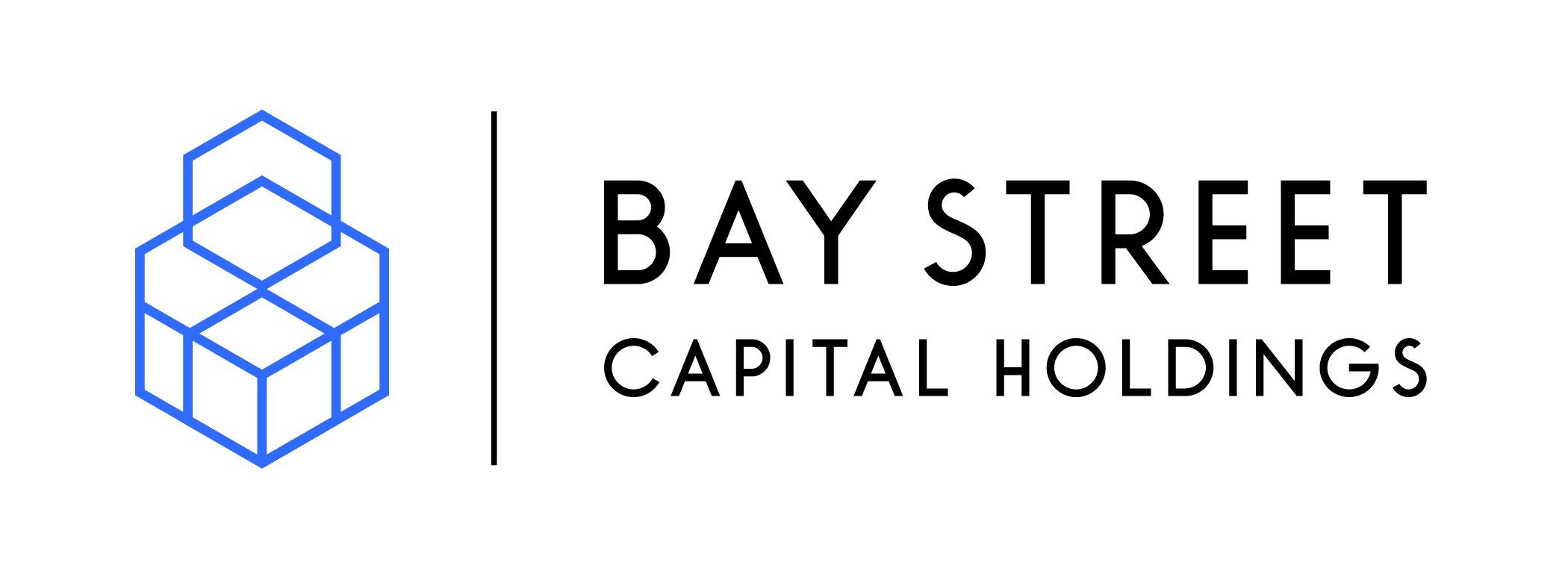Halal Investing

With the rise of ethical investing, more and more people are looking for ways to align their investments with their values. For Muslims, halal investing provides an opportunity to invest in a way that is compliant with their faith and ethical principles. By avoiding investments in companies that deal with alcohol, tobacco and other prohibited activities, halal investing allows Muslims to build wealth while also staying true to their religious beliefs.
Halal investing has gained popularity in recent years, and in this blog, we will explore best practices, practical examples, gray areas, benefits of investing in accordance with Islamic law, the best-known publicly traded halal companies and how to get started with halal investing.
Key Takeaways
- Halal investing focuses investments on portfolios that align with Islamic law
- Islamic law prohibits gambling, alcohol, tobacco, and riba (or interest)
- There are gray areas in halal investing and adequate research is essential in finding halal-compliant investments
- Halal investing has numerous personal and societal benefits although it doesn't always guarantee returns
Disclaimer
The contents of this article are for educational purposes only. They are not intended to be a source of professional financial advice. You will find experts on financial planning, financial management, and real estate here. More on disclaimers here.
What is Halal Investing?

Halal investing is a type of investing that adheres to Islamic principles, which prohibit investing in companies that are involved in activities that are considered haram or forbidden, in Islam.
For example, Islamic law prohibits gambling and alcohol, and in Islamic finance, there are certain rules and guidelines that must be followed to ensure that investments are made ethically and in accordance with Shariah law.
Some of the key principles of halal investing include avoiding investments in companies that deal with these prohibited activities. Additionally, investments must be made in companies that have an acceptable level of debt, and investments must not involve any form of interest or riba.
There are several financial institutions and investment firms that offer halal investment options, including mutual funds, exchange-traded funds (ETFs), and real estate investments. These investments need to be carefully screened to ensure that they comply with Islamic law, and they may offer competitive returns while also aligning with the ethical values of Islamic investors.

Halal investing is an important part of Islamic finance, and it provides an opportunity for Muslims to invest their money in a way that is consistent with their religious beliefs. Just because a company belongs to a particular industry sector doesn't mean it's completely halal.
For example, a computer software company might create gambling programs, or a publisher of children's books might produce pornographic material. Similarly, an agricultural producer could sell crops only to breweries, which would make it haram upon closer inspection.
For professional guidance on investment management, reach out to our registered investment advisor, William Huston.
Types of Halal Investments

There are several types of halal portfolios that are consistent with Islamic principles and can help Muslims build wealth while adhering to their faith and values. Here are some of the common types of halal investments.
Equities
Halal-compliant equities or stocks, are shares of ownership in a company that comply with Shariah law. These stocks must be from companies that are involved in halal industries, and they must avoid haram industries, such as alcohol, tobacco and gambling. Halal-compliant equities are traded on stock exchanges around the world and can provide investors with long-term capital growth.
Sukuk
Sukuk, also known as Islamic bonds, are financial instruments that comply with Shariah law. Sukuk represent a share in a pool of assets and generate income through rental income or profits from the sale of the underlying assets. Sukuk can provide investors with a steady stream of income and can be used to diversify a portfolio.
Real Estate
Real estate investments can be a halal investment option for Muslims. Halal-compliant real estate investments involve the purchase and ownership of property, which can generate rental income and capital gains over time. Real estate investments can be made directly or through real estate investment trusts (REITs). Connect with our real estate expert. Ila is one of the best and she'll make your halal investment journey smooth.
Mutual Funds
Halal-compliant mutual funds are investment vehicles that invest in Shariah-compliant companies and assets. These funds are managed by professional fund managers and can provide diversification and exposure to a range of industries and asset classes.
Exchange-Traded Funds (ETFs)
Halal-compliant ETFs are similar to mutual funds, but they trade on stock exchanges like individual stocks. ETFs can provide investors with diversification and exposure to halal-compliant companies and assets.
These are some of the common types of halal investments that can help Muslims build wealth while adhering to their faith and values. It is important for Muslim investors to conduct thorough research and seek advice from experts in Islamic finance before investing in any halal-compliant investment.
Best Known Publicly Traded Halal Companies
Bay Street Capital Holdings
A Black-owned halal-inclined investment firm in Palo Alto, California.
Nestle
Nestle is a Swiss-based food and beverage company that has been certified halal by the Islamic Food and Nutrition Council of America.
Unilever
Unilever is a British-Dutch consumer goods company that has received halal certification for many of its products.
Johnson & Johnson
Johnson & Johnson is an American multinational healthcare company that has received halal certification for many of its products.
Azzad Ethical Fund
The Azzad Ethical Fund is an equity mutual fund focused on growth, and it is also the sole halal-screened mid-cap fund available in the United States. Some of these companies may provide stakeholders with and allow them access shariah compliance reports.
How Halal Investing can Help Build Wealth

Halal investing provides a way for investors to build wealth while adhering to Islamic law and values. By investing in halal-compliant companies and assets, Muslims can grow their wealth in a way that is consistent with their faith and ethical beliefs.
One of the key benefits of halal investing is that it allows investors to avoid companies and industries that are considered haram or prohibited, such as those involved in alcohol, tobacco, gambling and other activities that go against Islamic principles. By investing in halal-compliant companies and assets, investors can reduce their exposure to these industries and focus on investments that are aligned with their values.
In addition, halal investing can offer competitive returns and diversification opportunities. Halal investment portfolios can include equity mutual funds, exchange-traded funds (ETFs), and real estate investments, which can provide exposure to a range of industries and asset classes. By diversifying their investments, investors can manage risk and potentially earn higher returns over the long term.
Moreover, halal investing can help Muslim investors achieve their financial goals while also contributing to the greater good. Halal-compliant investments may support ethical and socially responsible practices, such as environmental sustainability and community development. By investing in companies that align with their values, investors can make a positive impact on society while building wealth for themselves and their families.
Overall, halal investing offers a way for Muslims to build wealth in a way that is consistent with their faith and values. By investing in halal-compliant companies and assets, investors can achieve their financial goals while making a positive impact on society.
Halal Investment Guidelines

Halal investment guidelines are principles and guidelines that are based on Islamic principles and are designed to help investors make ethical and Shariah-compliant investment decisions. These guidelines are important for Muslims who wish to invest in a way that is consistent with their faith and values. Here are some of the key halal investment guidelines:
Avoid Investments in Haram Industries
Muslims should avoid investing in companies that engage in activities that are haram or prohibited in Islam, such as alcohol, tobacco, gambling and adult entertainment.
Avoid Interest-based Investments
Muslims should also avoid investing in companies that deal with interest-based financial transactions, as interest or riba is prohibited in Islam.
Conduct Thorough Research
Before investing in any company or asset, investors should conduct thorough research to ensure that it complies with Shariah law and Islamic principles.
Invest in Ethical and Socially Responsible Companies
Muslims should invest in companies that engage in ethical and socially responsible practices, such as environmental sustainability, fair labor practices, and community development.
Seek Expert Advice
Investing in halal-compliant investments can be complex, so it is important to seek advice from experts in Islamic finance and investment. To be safe in your halal investment venture, reach out to William Huston for help.
Be Patient
Halal investments may not always provide the highest returns, but investors should be patient and focus on long-term investment goals.
By following these halal investment guidelines, Muslims can invest their money in a way that is consistent with their faith and values while also potentially receiving investment income. Halal investing is an important aspect of Islamic finance, and it provides an opportunity for Muslims to own halal portfolios and build wealth.
How to Build Your Halal Portfolio
To build a halal portfolio, investors should follow these steps:
- Determine investment goals and risk tolerance.
- Identify halal-compliant asset classes and investment options, such as equities, sukuk, real estate, mutual funds, and ETFs.
- Conduct thorough research to ensure that investments comply with Shariah law and Islamic principles.
- Diversify investments across multiple asset classes to manage risk.
- Seek advice from experts in Islamic finance and investment.
- Monitor the portfolio regularly and make adjustments as needed to ensure that it remains halal-compliant and aligned with investment goals.
By following these steps, investors can build a halal portfolio that aligns with their faith and values while potentially generating competitive returns over the long term.
Gray Areas of Halal Investing
Technology:
Technology companies often have complex business models that can make it difficult to determine if their products or services are halal or haram.
Pharmaceutical Industry:
Some halal investors may have ethical concerns about investing in pharmaceutical companies that produce drugs with haram ingredients such as alcohol or pork gelatin.
Investing in Prohibited Industries
Investing in prohibited industries or haram investing is a controversial topic that has long been debated by investors and ethical analysts. Prohibited industries are those that engage in activities that are considered harmful or unethical, such as tobacco, alcohol, gambling, and weapons manufacturing. While some investors may see these industries as lucrative and profitable, others argue that investing in them goes against their personal values and beliefs.
From an ethical perspective, investing in prohibited industries can be seen as supporting and enabling activities that are harmful to individuals and society as a whole. For example, investing in tobacco companies may contribute to the spread of smoking-related illnesses and deaths. Investing in weapons manufacturing companies may contribute to the perpetuation of conflicts and violence around the world.
However, from a financial perspective, some investors may argue that investing in prohibited industries can be profitable, as these industries may have high demand and generate significant revenue. Additionally, some argue that by investing in these industries, investors can have a positive impact by advocating for responsible and ethical practices within these industries.
Ultimately, the decision to invest in prohibited industries is a personal one that depends on an individual's values, beliefs, and financial goals. It is important for investors to carefully consider the ethical implications of their investments and to choose investments that align with their values and goals. By investing in industries that are aligned with their values, investors can not only build wealth, but also make a positive impact on the world.
Benefits and Risks of Halal Investing
Here are common pros and cons of halal investing:
Pros of Halal Investing
These halal investing pros are worth taking note of:
Religious Alignment
Halal investing allows Muslims to invest in companies that align with their religious beliefs, which can provide peace of mind and satisfaction.
Socially Responsible
Halal investing encourages socially responsible investing, which promotes ethical and sustainable business practices.
Diversification
Halal investing promotes diversification, which reduces the risk of investing in one particular industry or company.
Long-term Perspective
Halal investing promotes a long-term investment horizon, which can lead to better returns and lower volatility.
Cons of Halal Investing
These cons are worth considering too:
Limited Investment Opportunities
Halal investing limits investment opportunities, as many companies are involved in haram activities such as alcohol, tobacco, and gambling.
Higher Fees
Halal investing funds may have higher fees due to the specialized nature of the investments.
Market Risk
Halal investing does not guarantee profits or protection against market downturns.
Invest in Your Values
In conclusion, halal investing has both pros and cons, and it is important to conduct thorough research and seek advice from experts before making any investment decisions. Best practices include conducting due diligence, seeking transparency, and consulting with financial advisors or Islamic scholars.
Real estate and ethical funds are practical examples of halal investing, while technology and the pharmaceutical industry are gray areas. Nestle, Unilever, and Johnson & Johnson are some of the best-known publicly traded halal companies.
Bay Street Capital Holdings

Bay Street Capital Holdings is an independent investment advisory, wealth management, and financial planning firm headquartered in Palo Alto, CA. They manage portfolios with the goal of maintaining and increasing total assets and income with a high priority on managing total risk and volatility.
Founded by William Huston after 13 years of supporting the United States' largest retirement plan ($650B), Bay Street was established to advocate for diverse and emerging fund managers and entrepreneurs.
In 2021, Bay Street was selected as a finalist out of over 900 firms across the US in the category of Asset Manager for Corporate Social Responsibility (CSR).
Sources
https://www.nerdwallet.com/article/investing/halal-investing
https://www.islamicfinanceguru.com/halal-investments
https://www.saturna.com/amana/halal-investing
https://www.qardus.com/news/what-are-halal-stocks
https://blog.islamicly.com/Guidance/rules-of-shariah-compliant-equity-trading





















